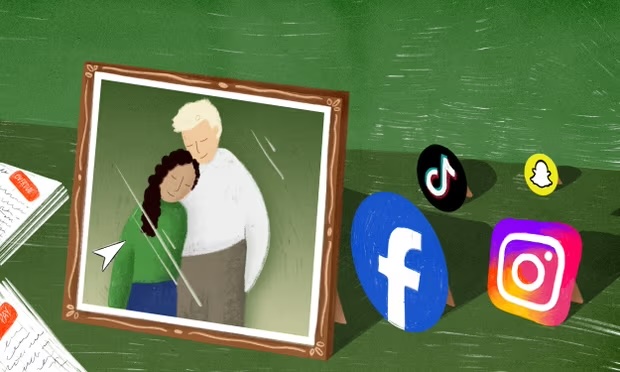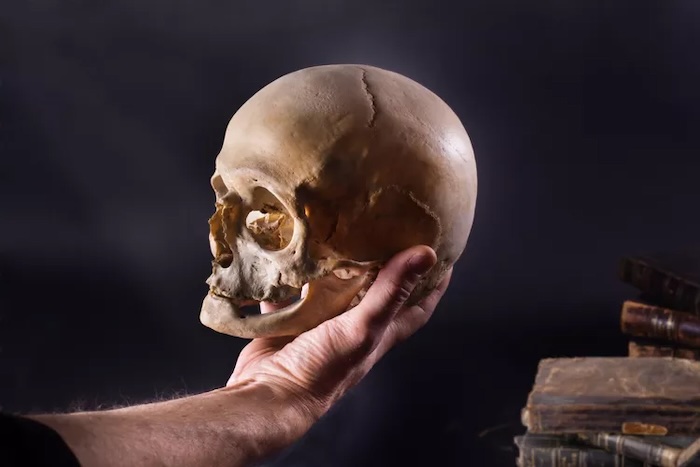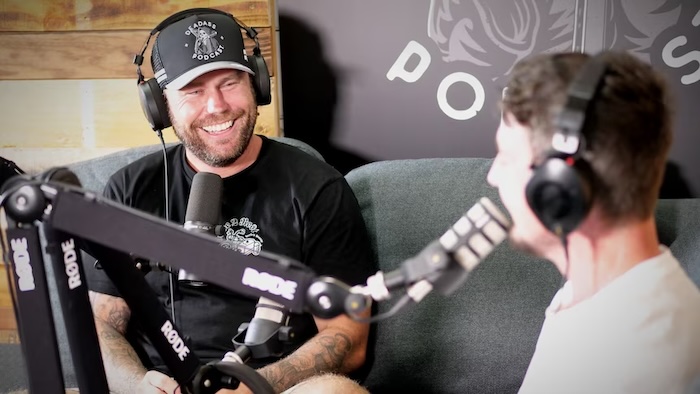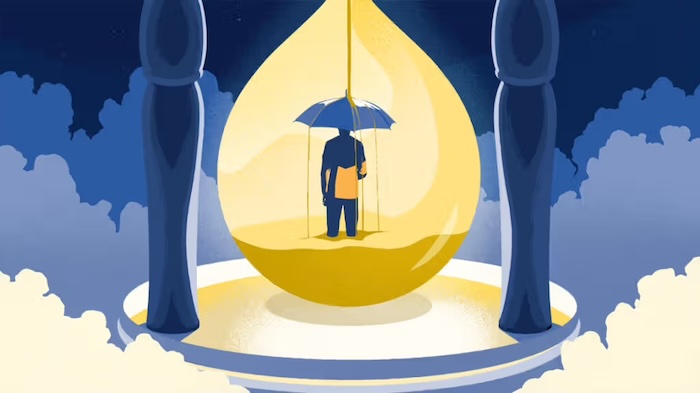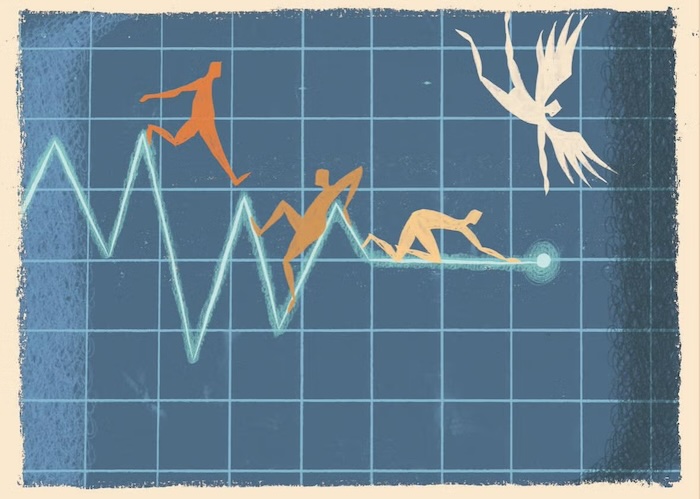– A recipe for garlic and rosemary lamb

By Siobhan Ball
I wrote half of last month’s column in an airport, trying to get to my grandmother before it was too late. Neither of us made it; she was gone before I even boarded. When I was done ugly crying – on the phone to my cousin as he broke the news, then again in front of the alarmed workers of the airport Costa – I wanted to metaphorically tear up everything I’d written and start on this instead, even if I didn’t have a clear idea of what this was yet, beyond something about rosemary’s tie to memory and a roast lamb no one would ever make for me again.
But it was the Winter Solstice coming up, and my first entry in a column on the place where food and magic intersect; and, crucially, it was too close to that moment of raw grief to pull it together into something coherent, something worthwhile. So I finished that piece on tea and mead and spices and the interwoven debts that we owe each other, and I’m bringing this to you now instead.
Rosemary is the herb of memory. I miss my grandmother.
When dealing with traditional herbal correspondences it can be hard to separate the magical from the mundane. Partly because our ancestors didn’t make that distinction themselves, seeing magic, faith, and physical medicine as part of a single whole in a world entirely imbued with the sacred. But also because, as traditional herbcraft has faded out of practice, attributions which were once meant to be understood literally can seem like metaphor or mysticism, only to then surprise us when we rediscover their physical nature. Rosemary, and the impact it has on memory, is one such example.
When Ophelia includes the herb in her list of accusatory flowers, it’s easy to assume her famous quote, “rosemary, that’s for remembrance” is as metaphorical as the rest. But rosemary has long been a herb associated with funerary rites, with death, and with remembrance of the departed, traditionally being placed on the biers of the dead. Its strong smell, which lingers in the room like a memory, would have helped to cover the beginnings of decay, as well as indelibly tying itself to that moment of grief and loss in the mourner’s neurology. Scent is one of the key triggers of memory, even with substances that don’t specifically effect cognition – how much more powerful rosemary’s impact then, with the discovery that it does.
Rosemary has other folkloric ties to memory outside of the funeral parlour – with Ancient Greek students supposedly using it as a study aid, and Sir Thomas Moore declaring the herb sacred to friendship because it provokes remembrance of the living, not just the dead.
As modern medical research examines herblore to see if there are effective treatments that have been overlooked, or that can be made effective with modern scientific techniques, rosemary has had its turn in the laboratory. Studies indicate that ingesting rosemary enhances recall speed as well as improves episodic and working memory, and may even have a positive impact on Alzheimers, though more research needs to be done to understand why.
Even inhaling the scent of rosemary seems beneficial, though the impact is smaller, and works best if the subject is exposed to the scent both during the learning process and then again when asked to recall things later on – scent as a memory trigger, enhanced by the effects of rosemary’s unique chemical composition on the brain.
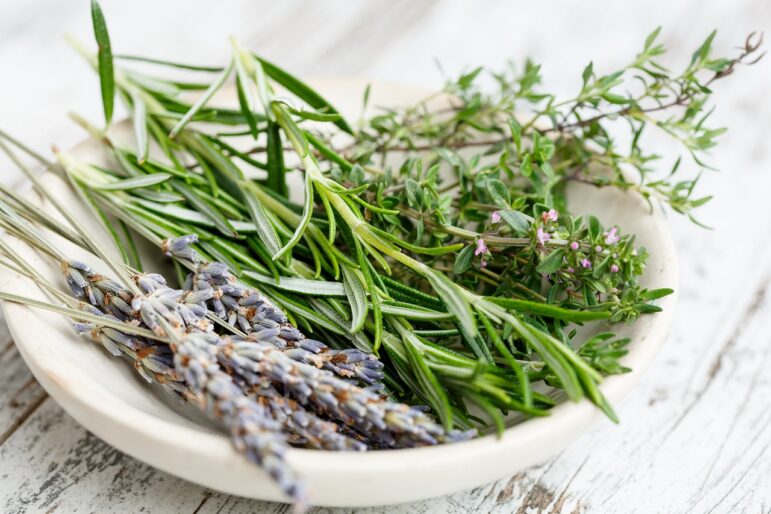
This puts us in a position where rosemary is uniquely suited to remember and honour the beloved dead. Symbolically linked to the dead through religious rites and burial practices, tied to love and the transition from one life stage to another (it is worn at weddings as well as funerals), rosemary also helps us to remember in a literal, physical way. Eaten regularly, it may help preserve the memories of those departed, as well as prompting us to remember meals shared or time spent cooking together when the familiar scents reach us and work their neurological magic.
To combine the spiritual with the physical is a very powerful thing, grounding us in both realms at once, and binding them together in us. That which is gone is never really gone.
Garlic and Rosemary Lamb
Growing up, my grandmother was the only person who could cook a roast lamb I actually enjoyed eating. I don’t know how she did it, and she was a cooking by instinct sort of person so there are no recipes left behind. I still don’t eat lamb that much, though it’s appeared more often in my house since I married a New Zealander, but I knew it was exactly what I wanted to make for this column, and my grandmother. I hope you like it.

Lamb shoulder (900g)
Fresh rosemary (2 – 3 tablespoons, chopped)
3 bulbs of garlic
500g baby potatoes
125 ml red wine
Olive oil
Salt and pepper
Flour
Start by setting the oven to pre-heat at 240 C (220 C fan, ~450 F). While that’s heating up, mix four tablespoons of olive oil with eight cloves of crushed garlic, the rosemary, and the salt and pepper. When thoroughly mixed rub it all over the lamb shoulder. Halve the remaining garlic bulbs and place them with the potatoes in a roasting tray, drizzle with olive oil, crack salt and pepper over them, and then place the lamb on top. Finally, pour the wine over it all and cover with a tinfoil tent before placing it into the oven.
Let the lamb roast for fifty minutes and then remove the tinfoil for the final ten minutes to let it crisp up nicely. Once it’s done let the lamb rest for fifteen minutes. While the meat is resting, remove the garlic and potatoes from the tray so you can turn the drippings into a gravy by whisking in flour over a low heat until it reaches your preferred consistency.
Complete Article ↪HERE↩!

